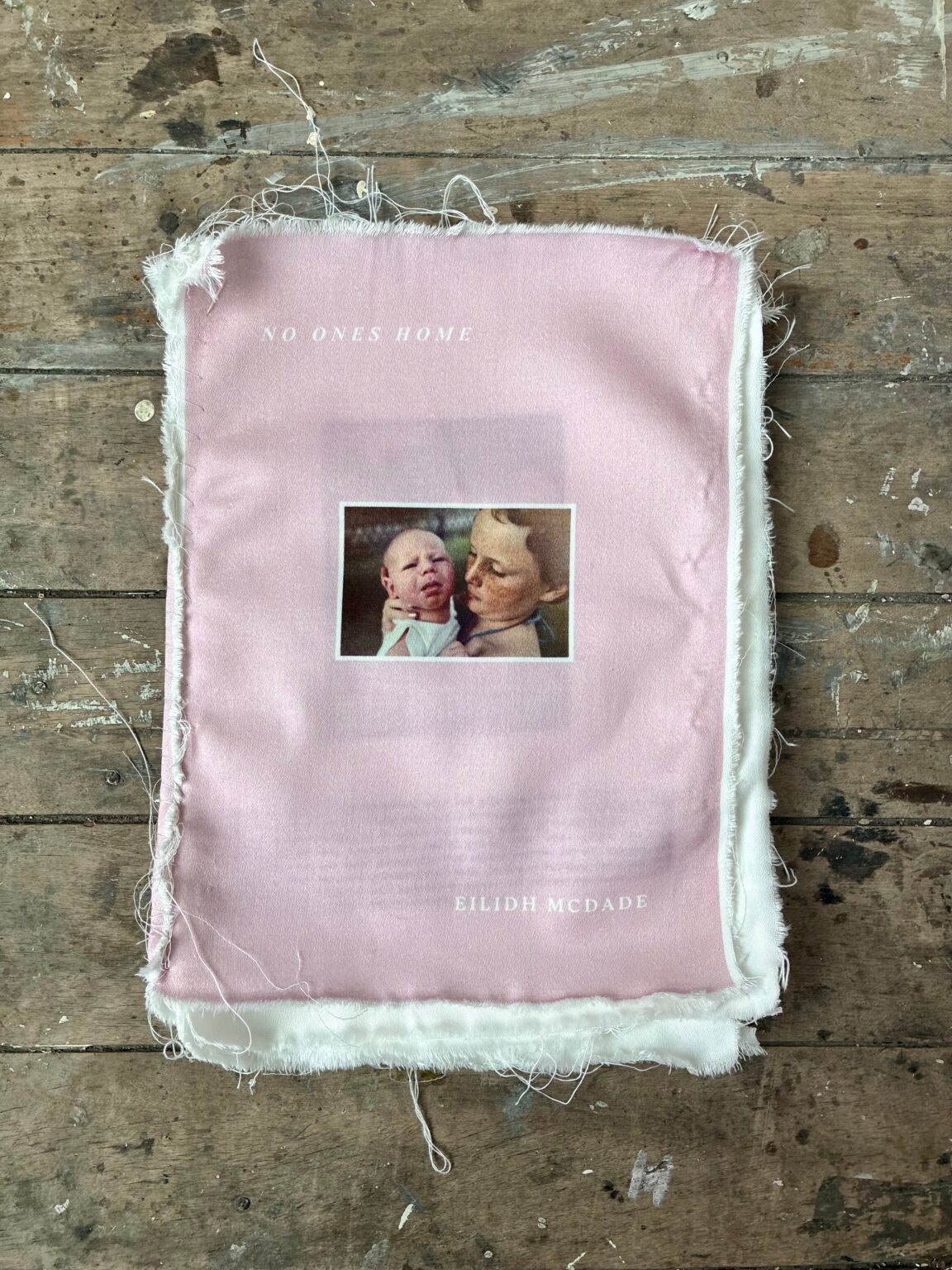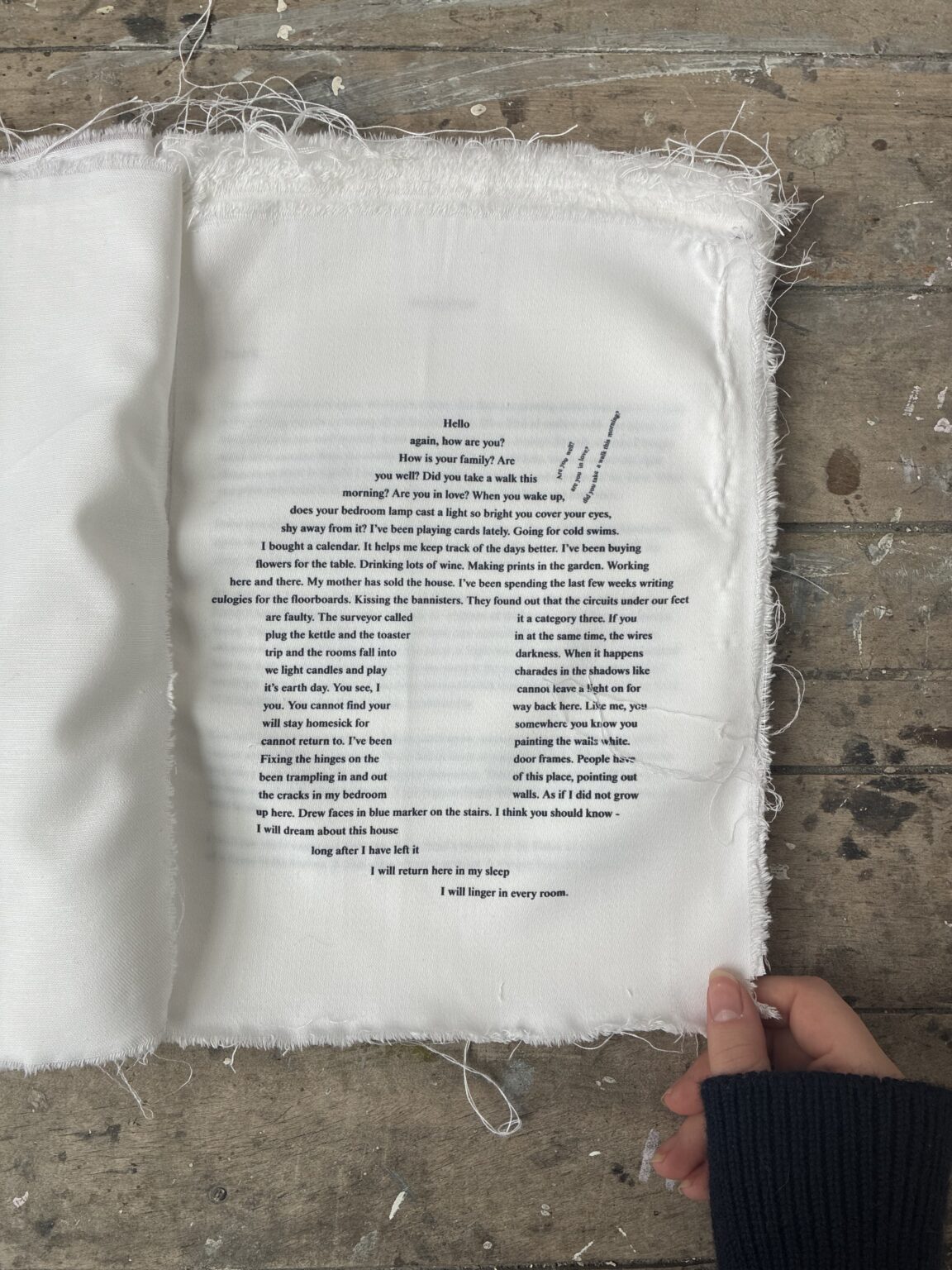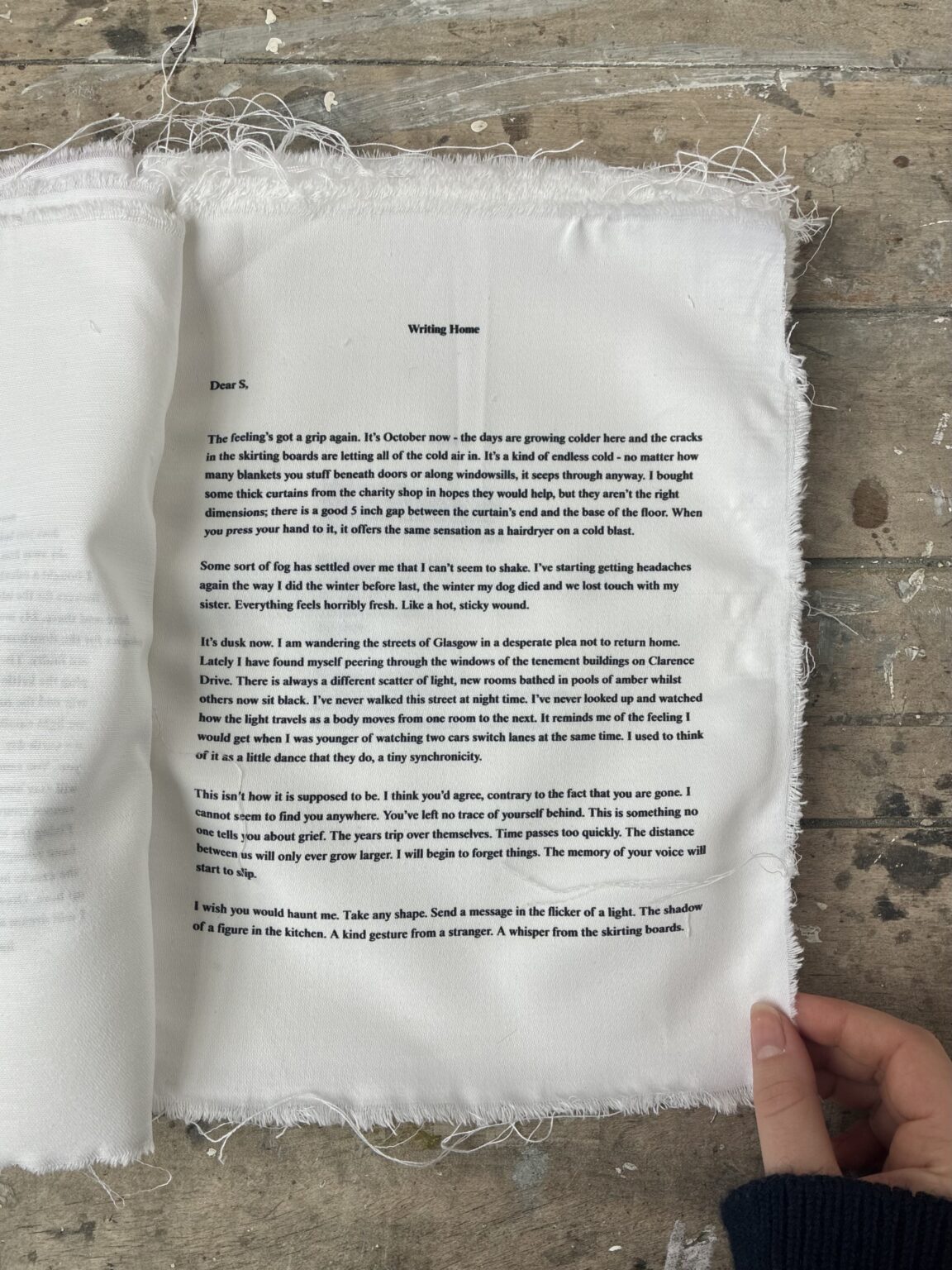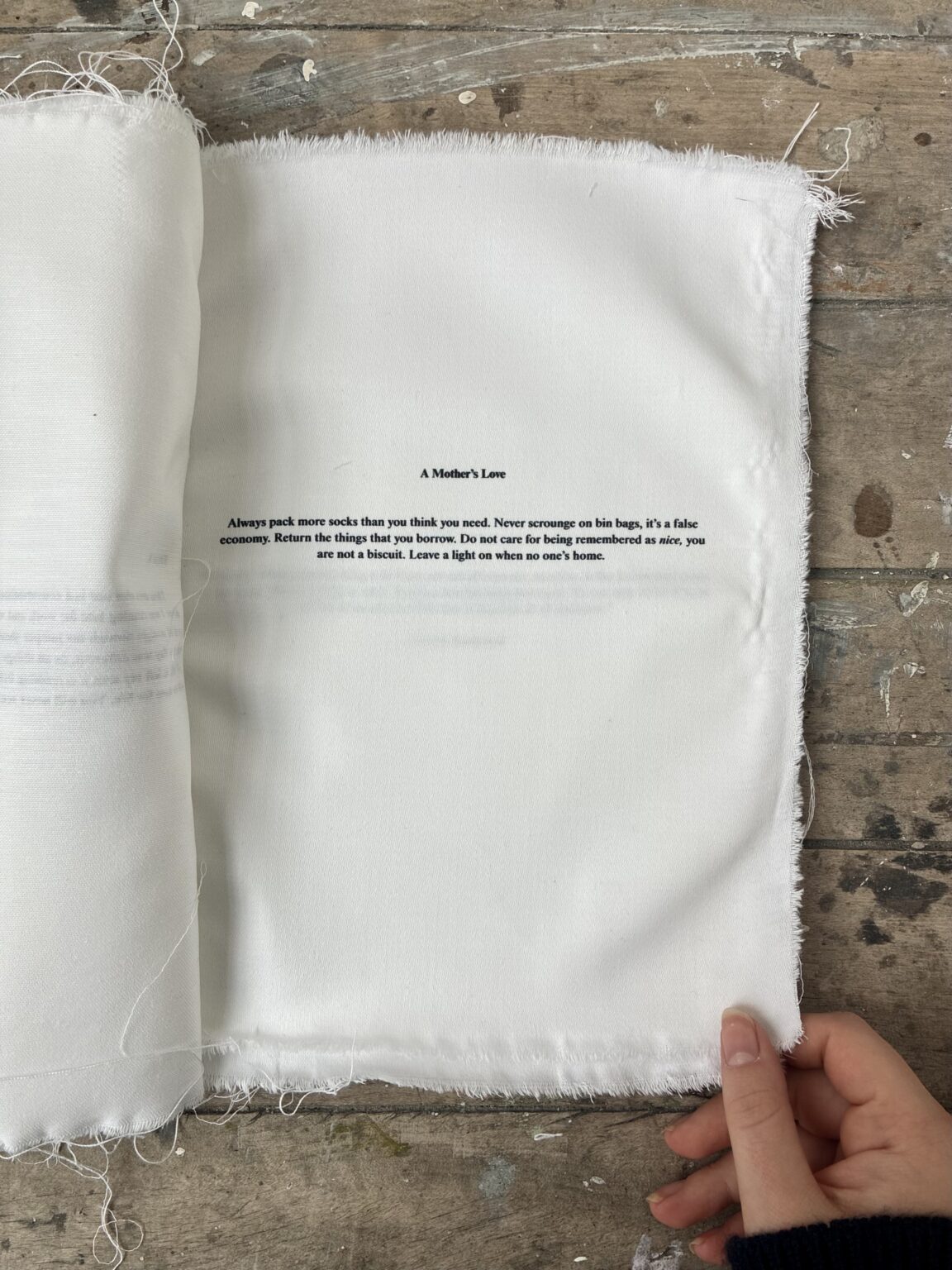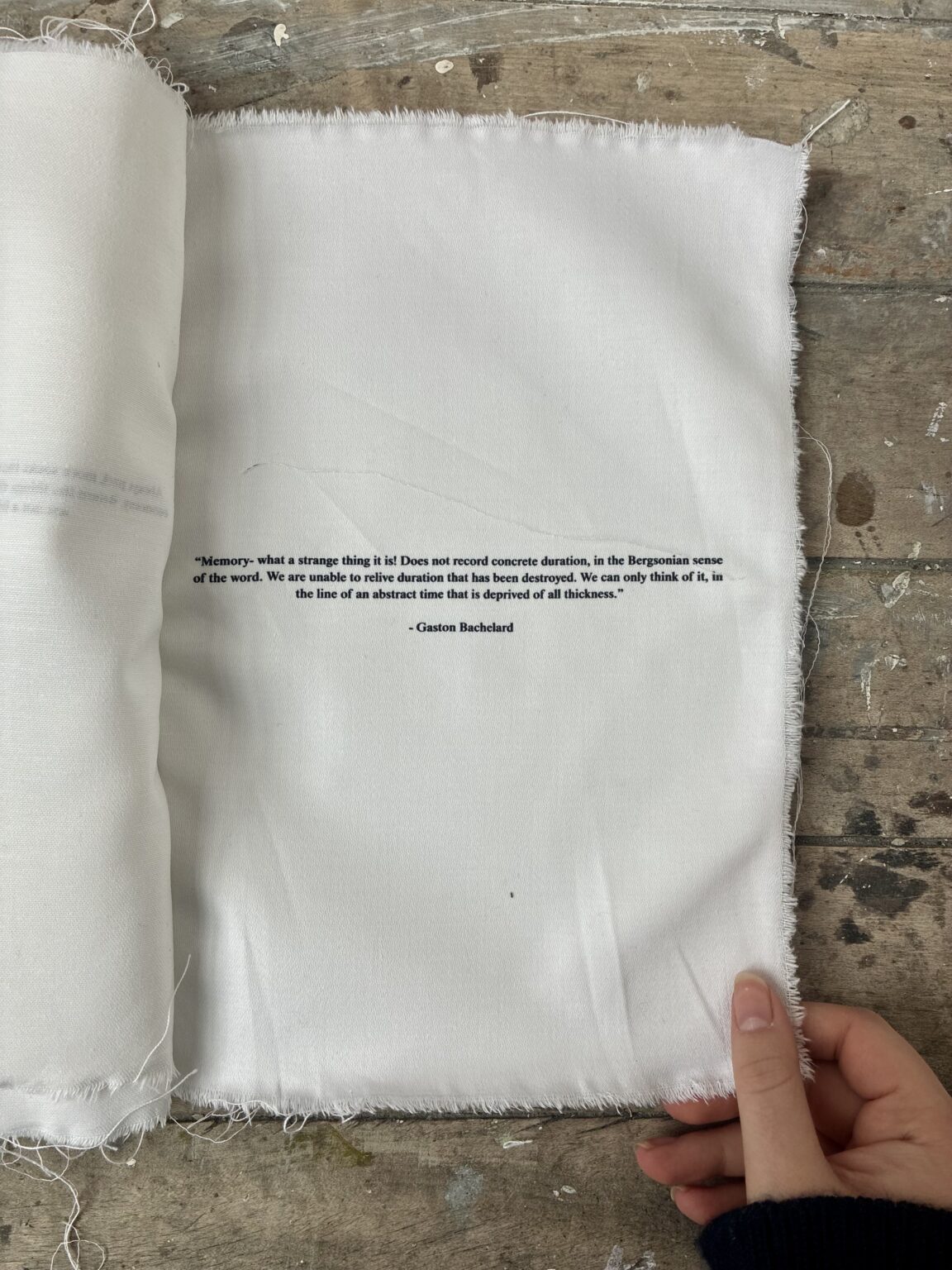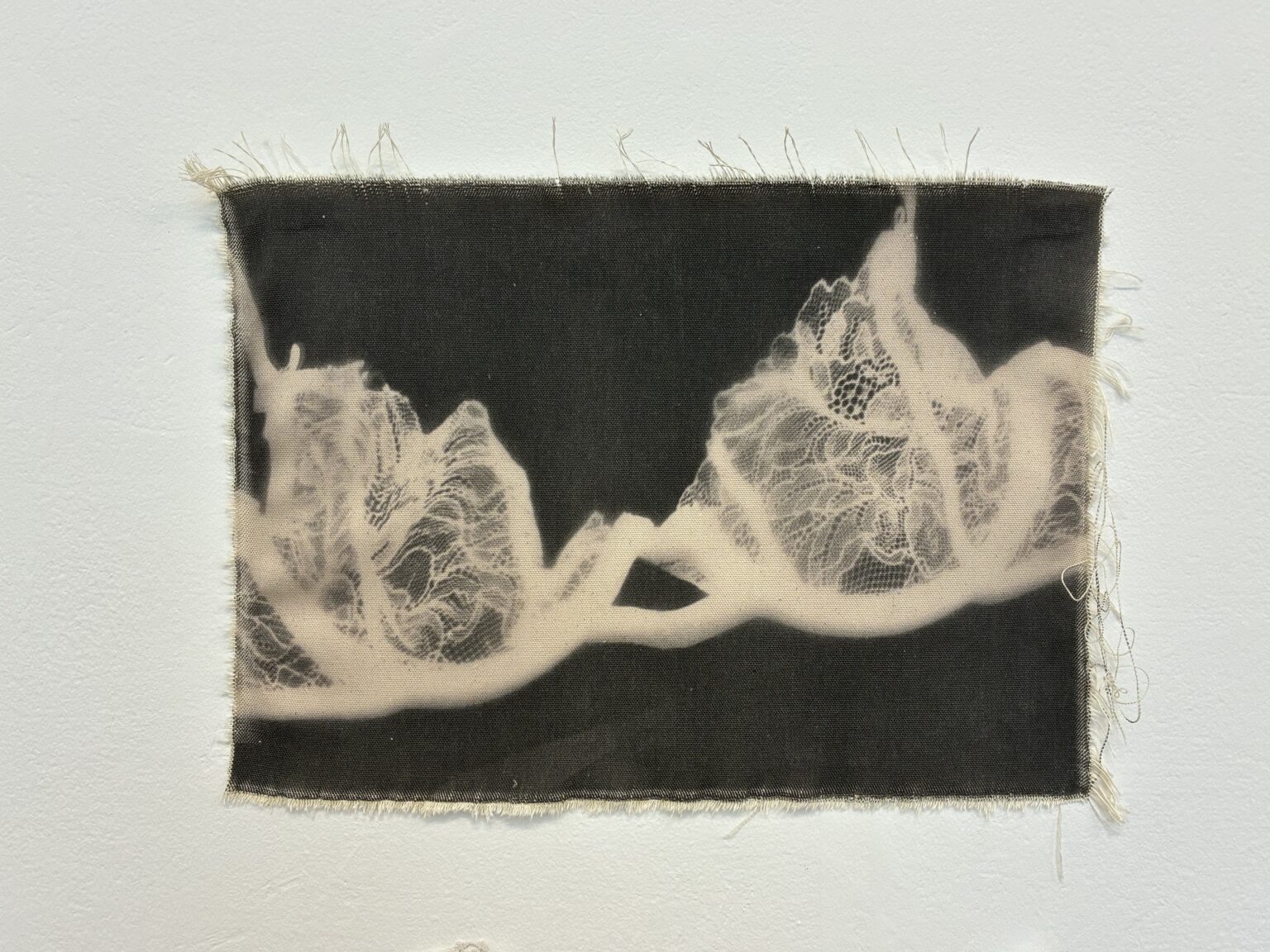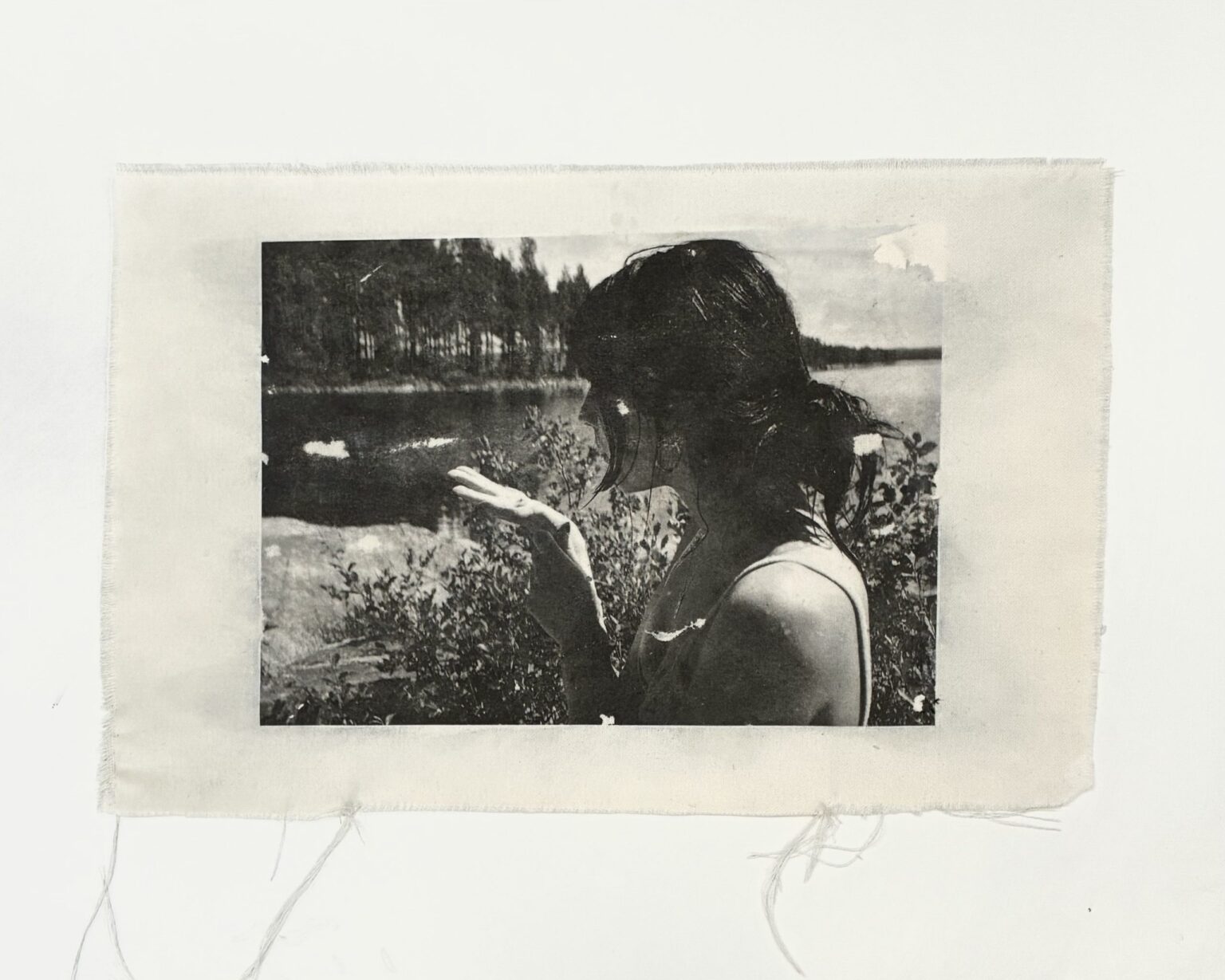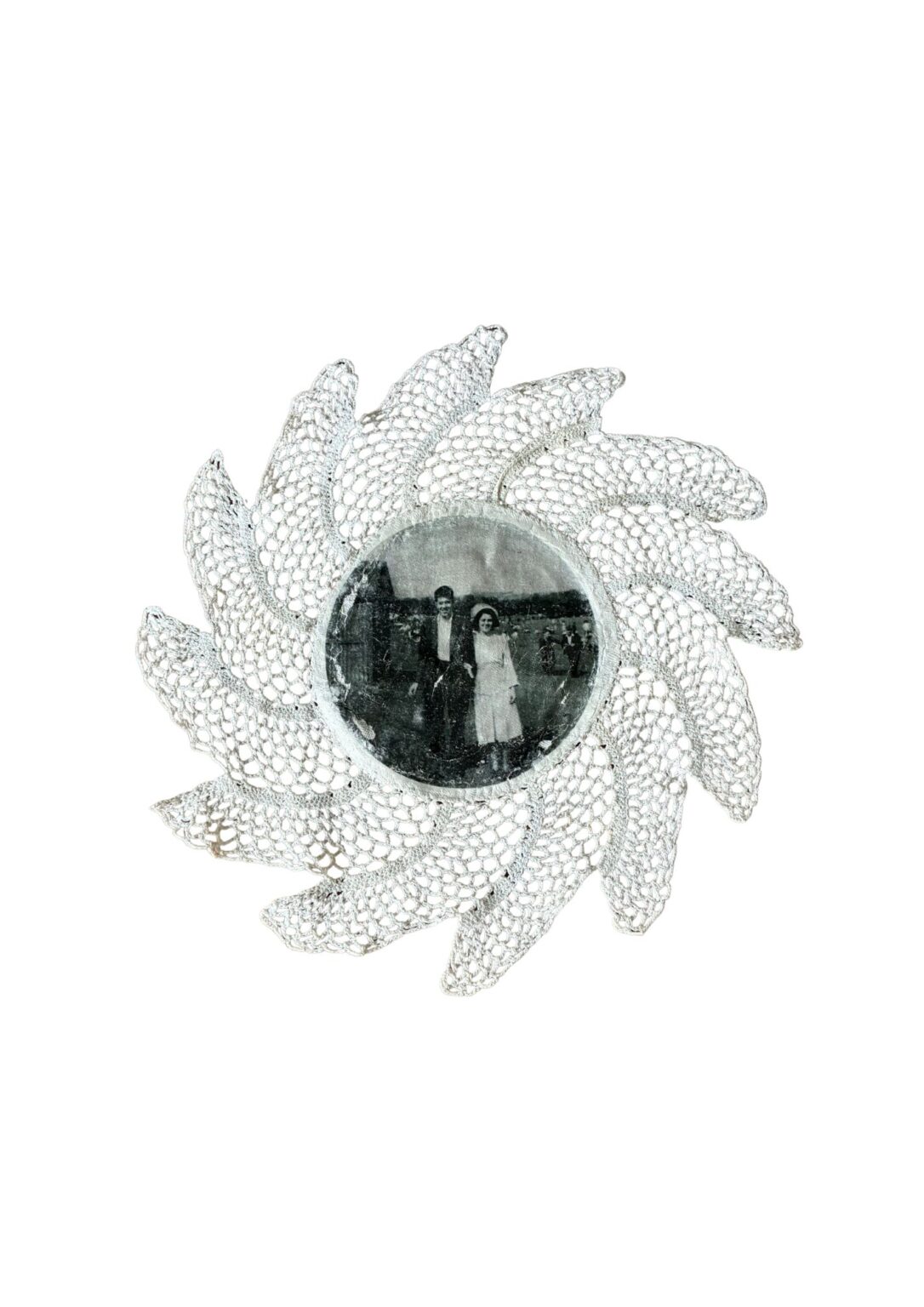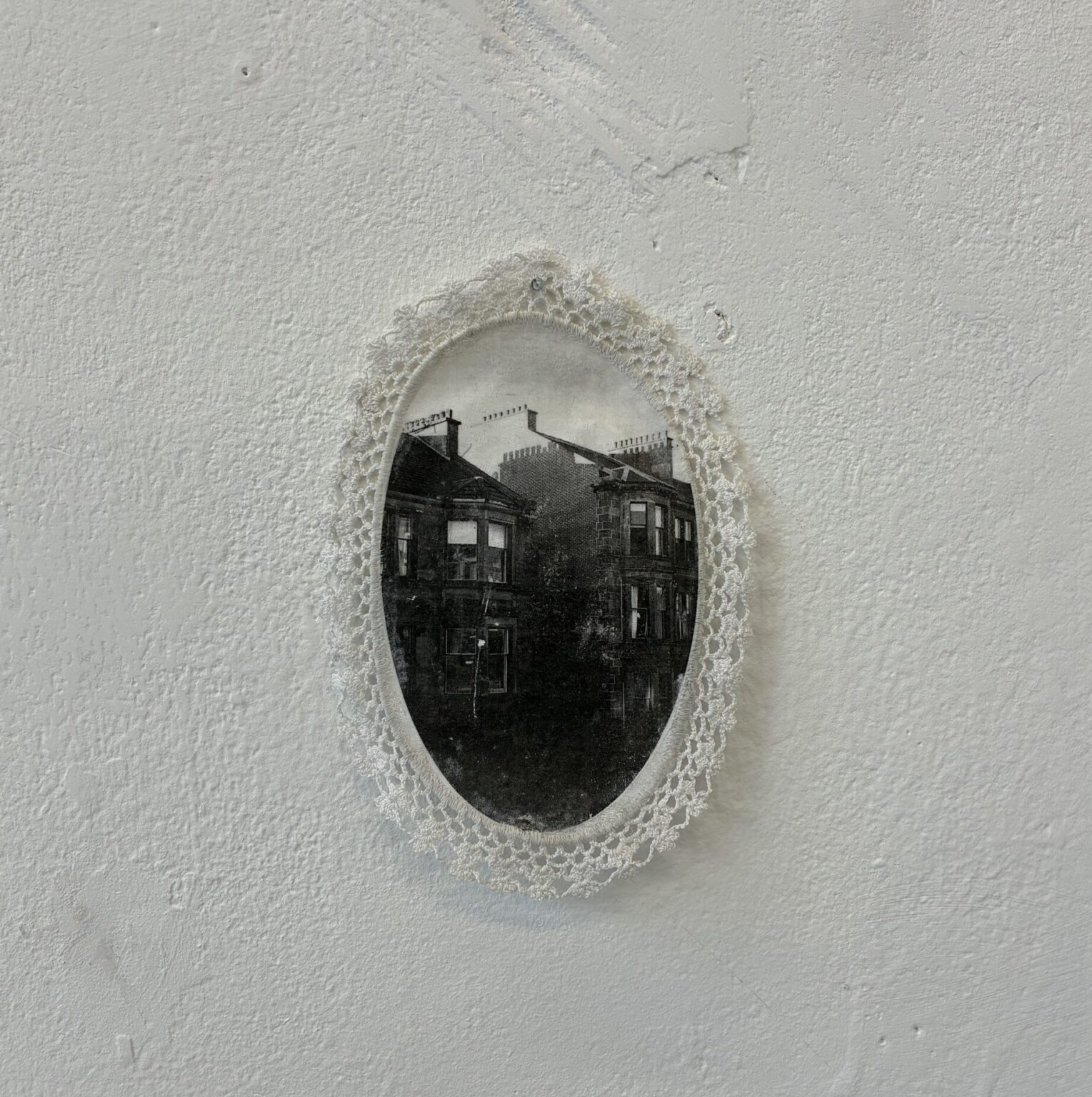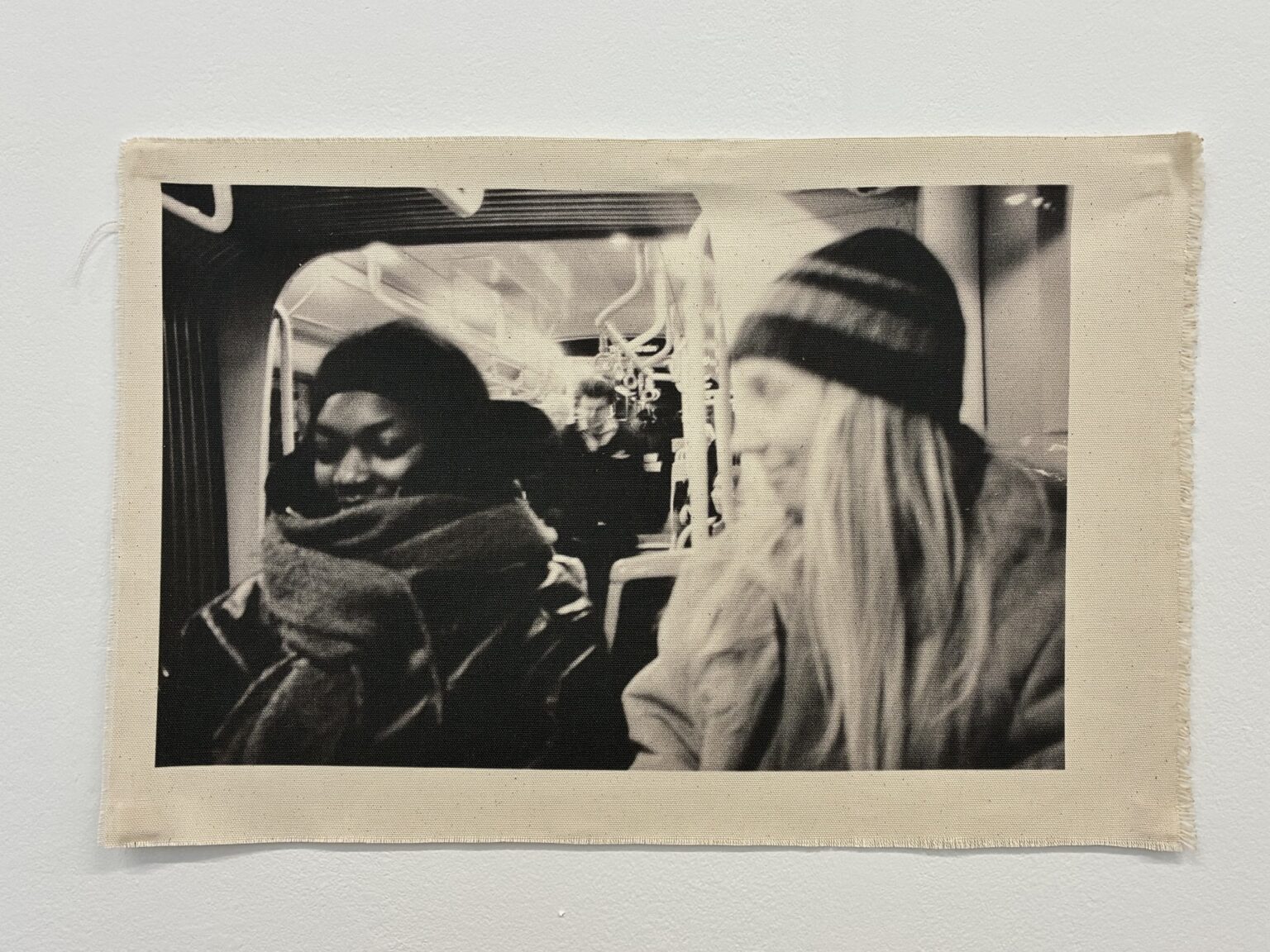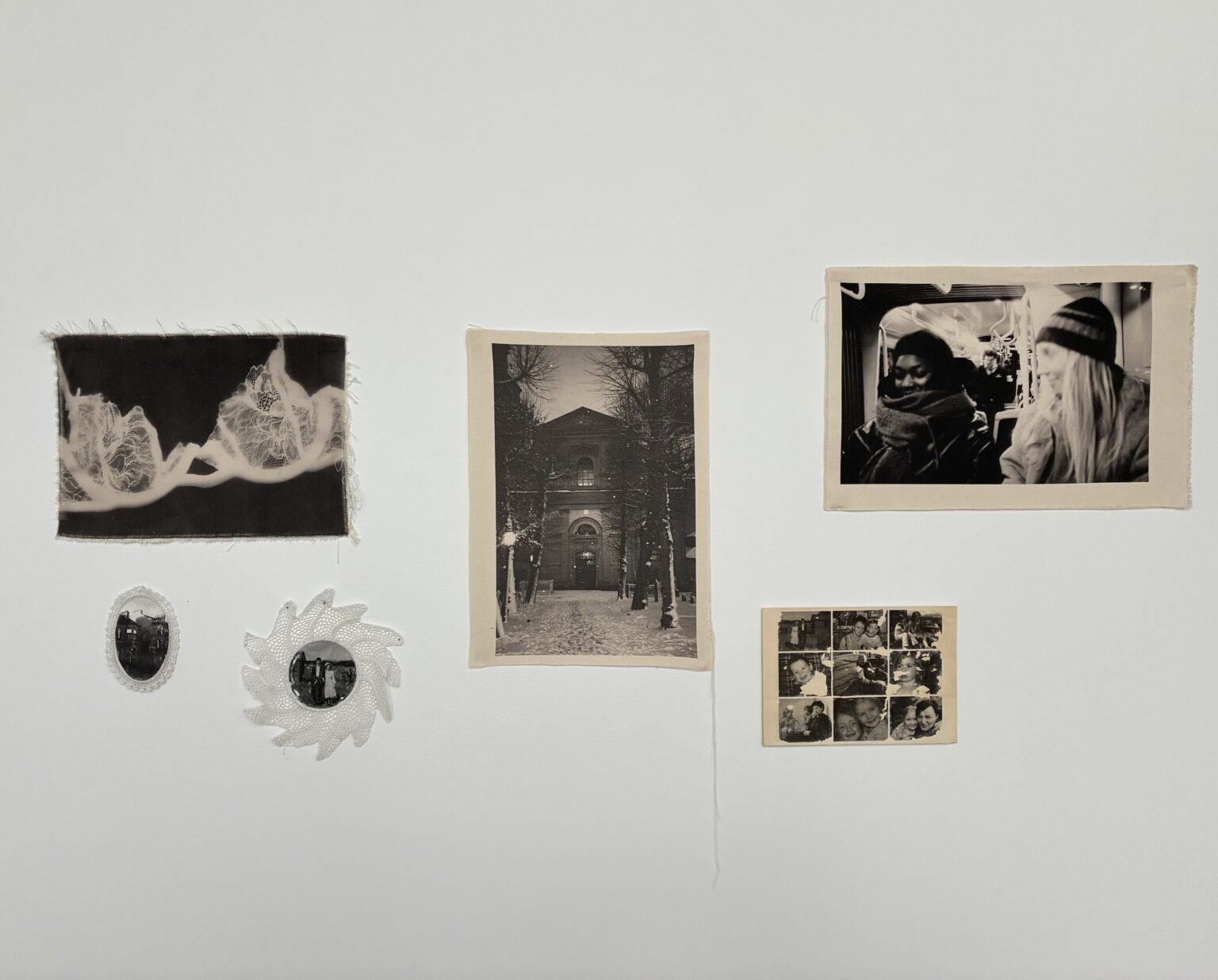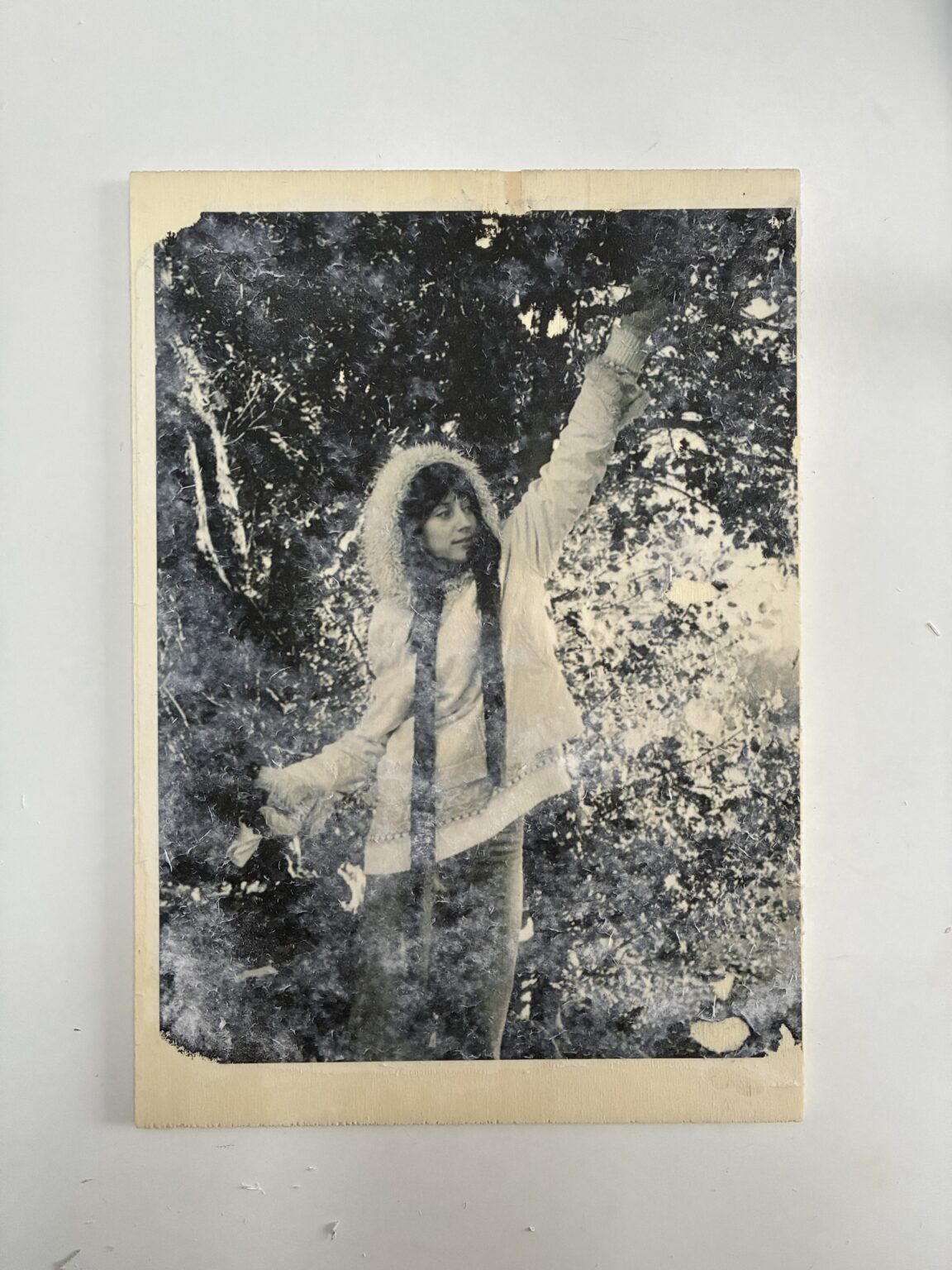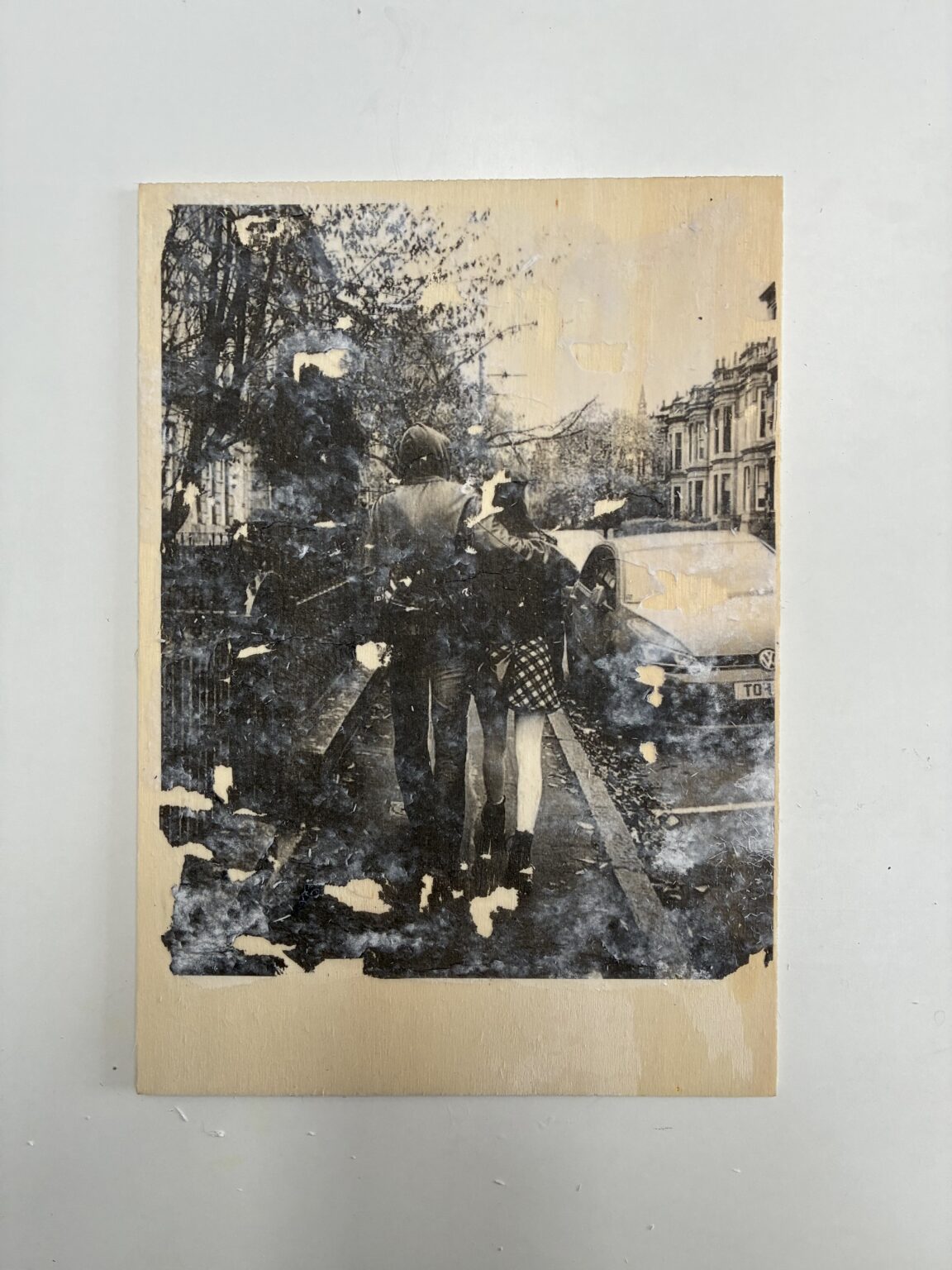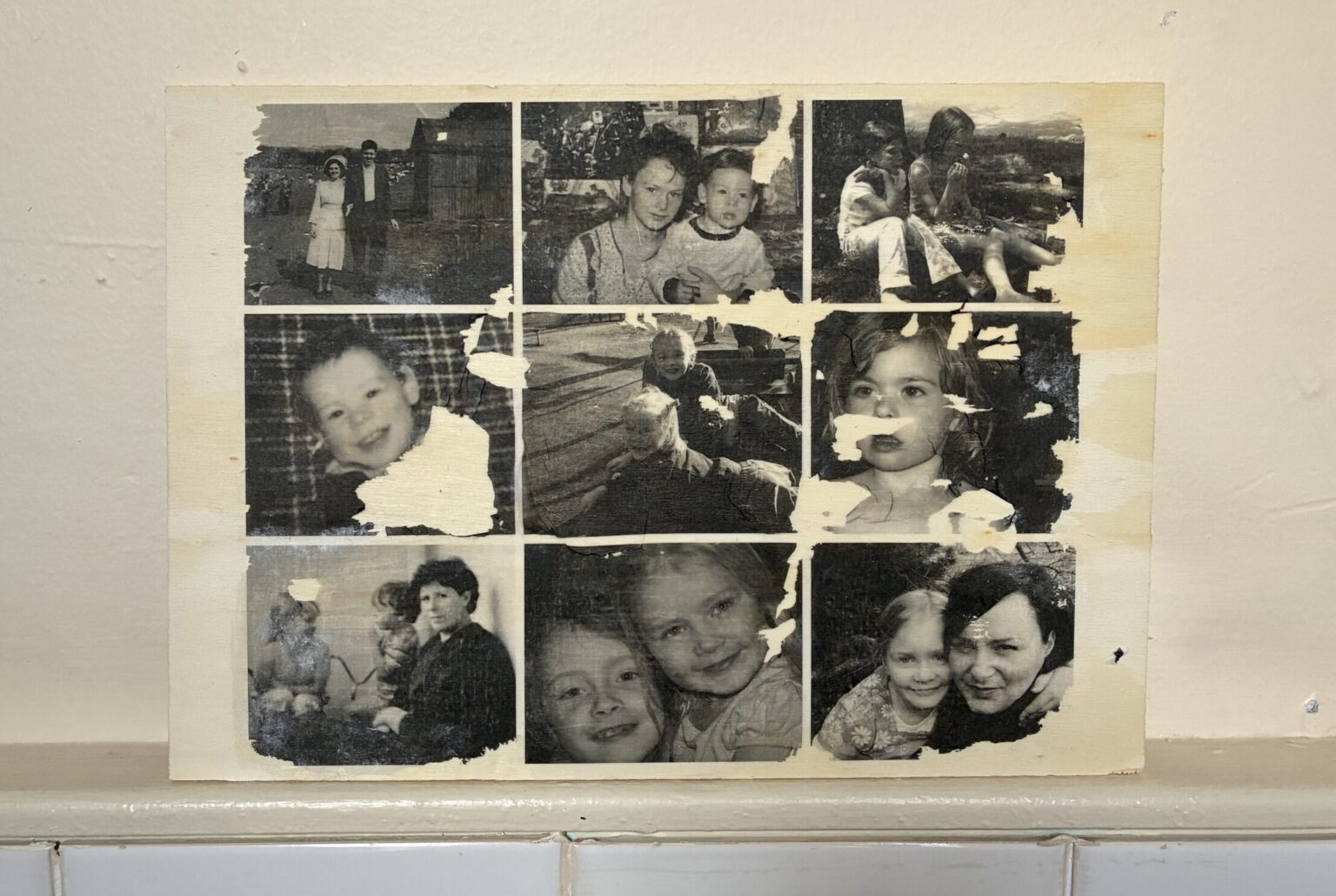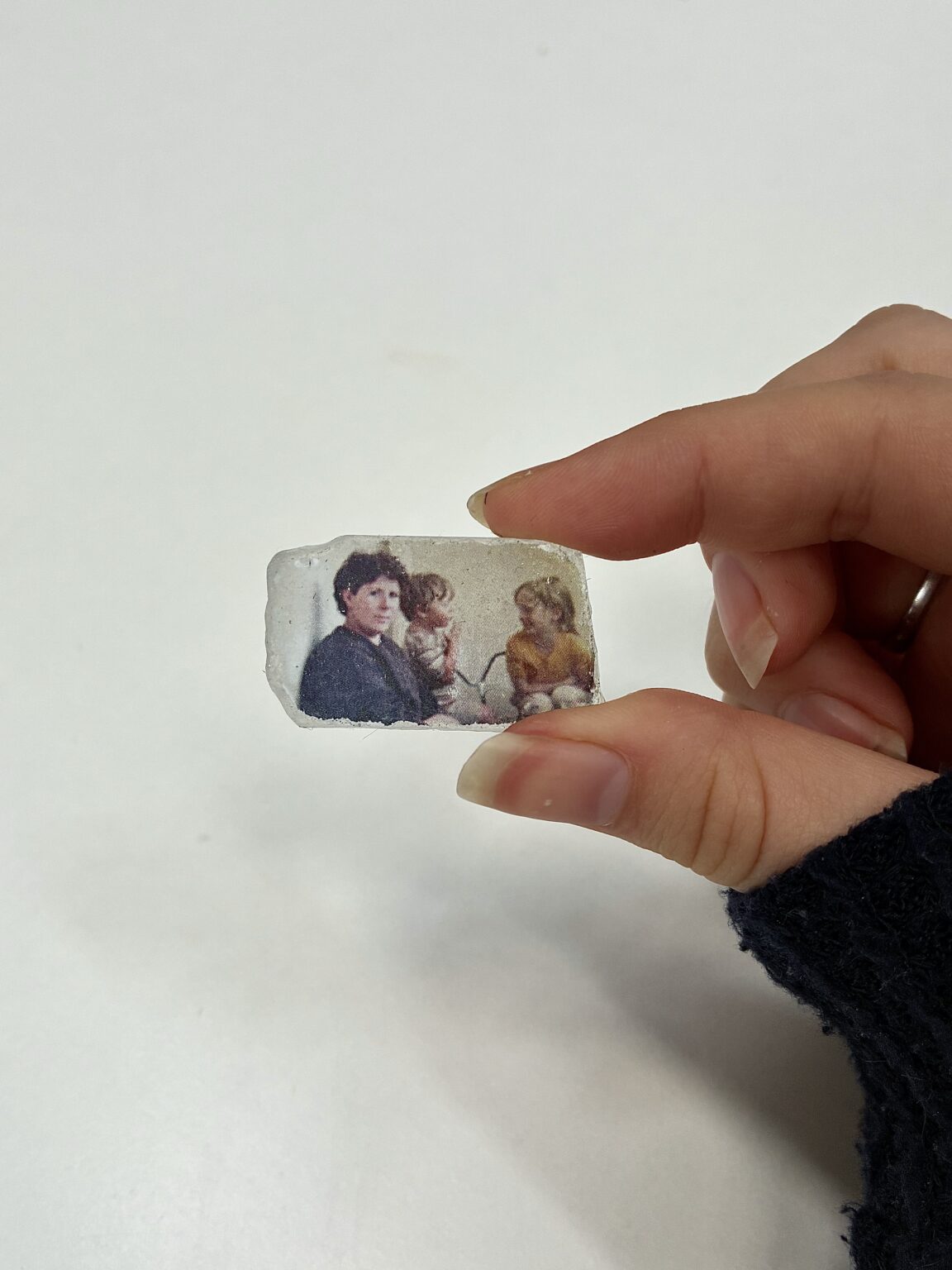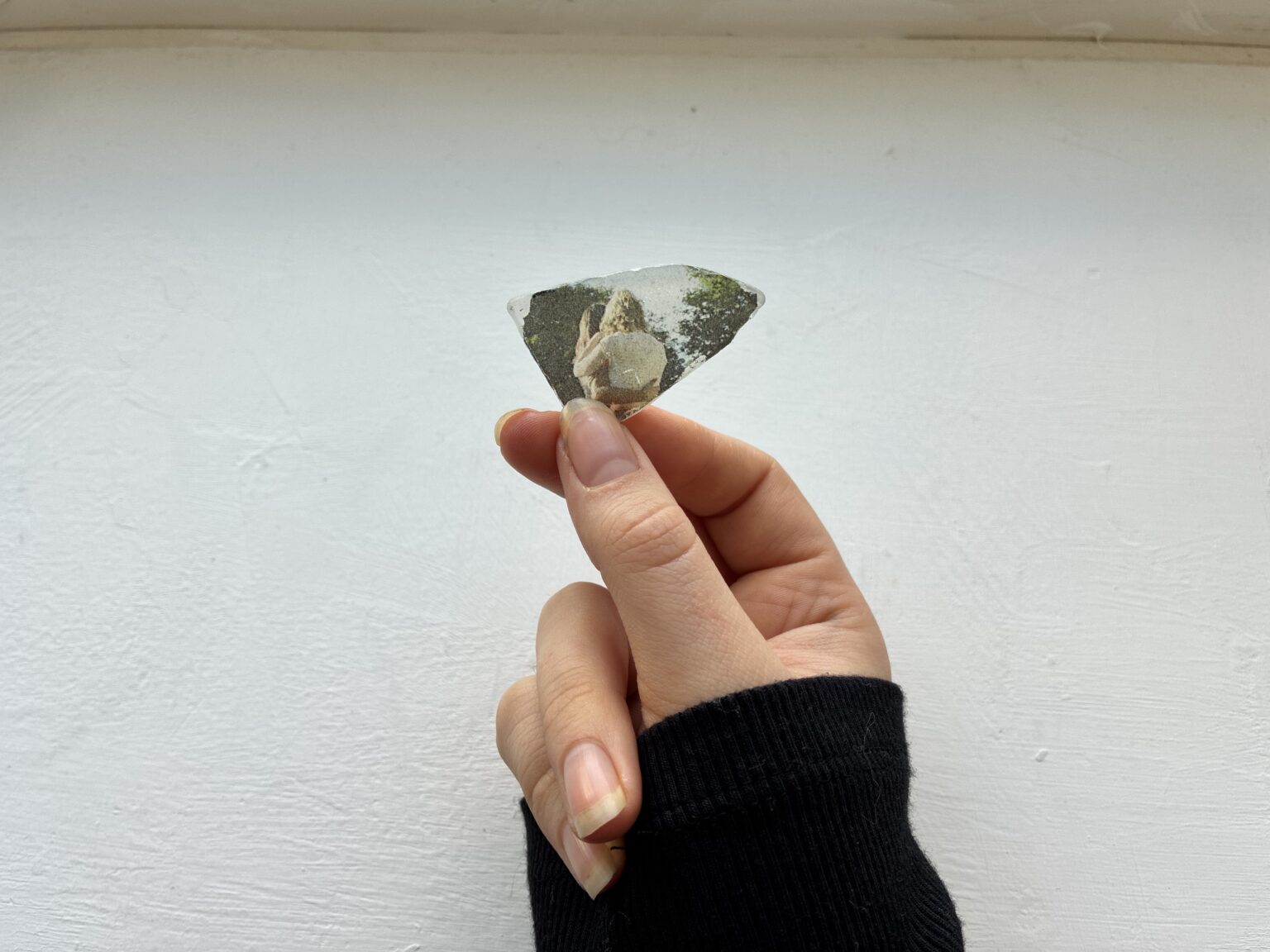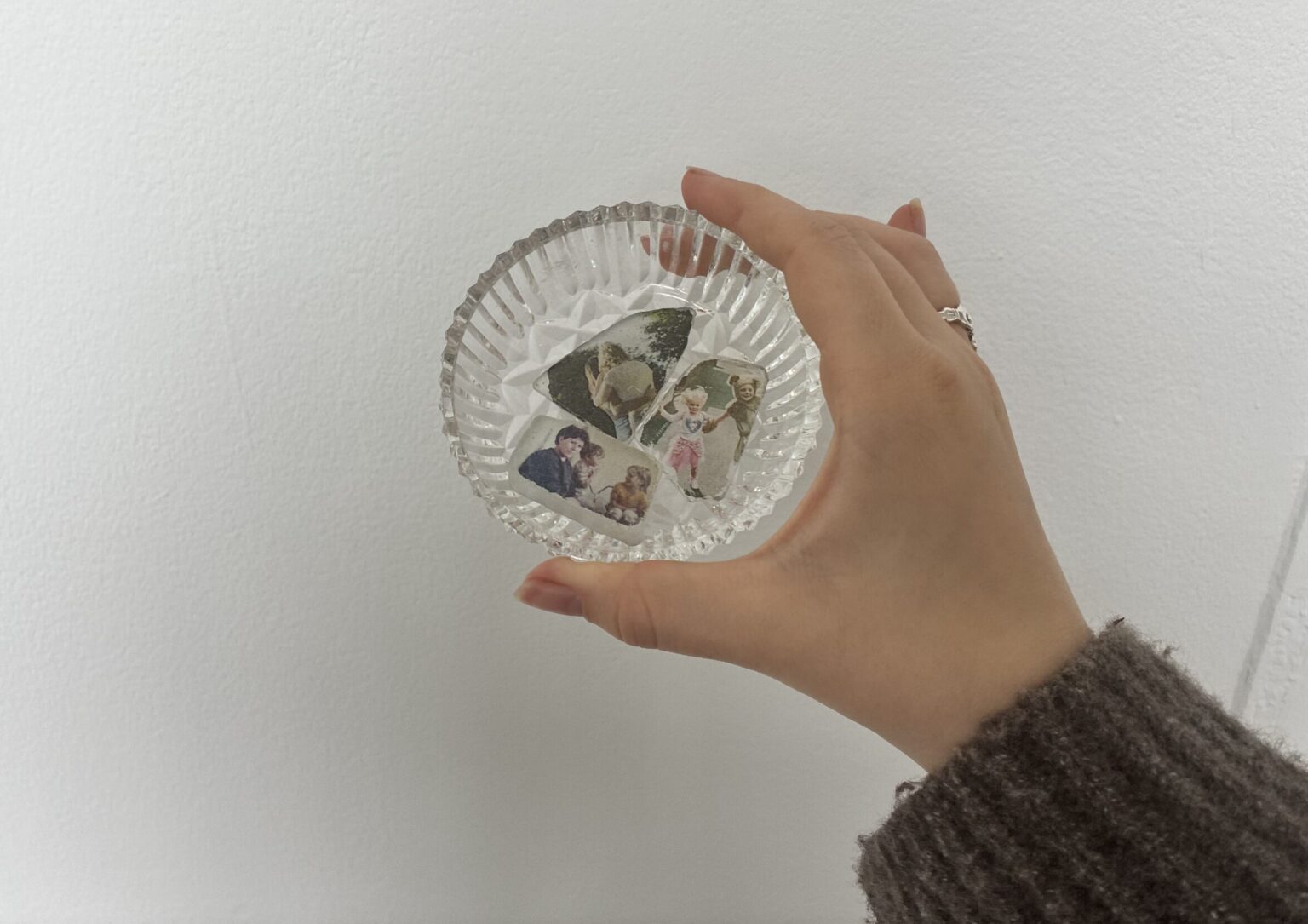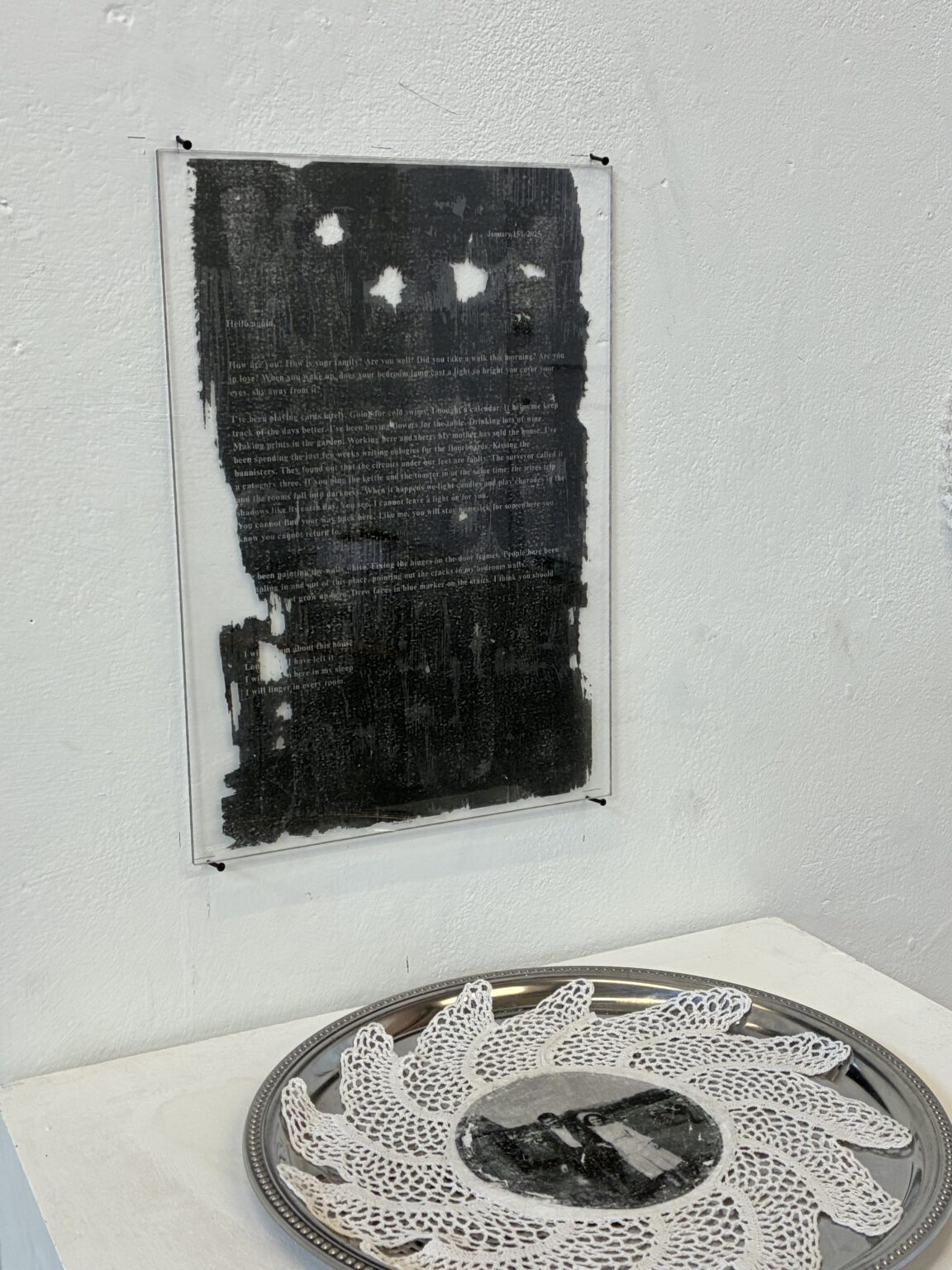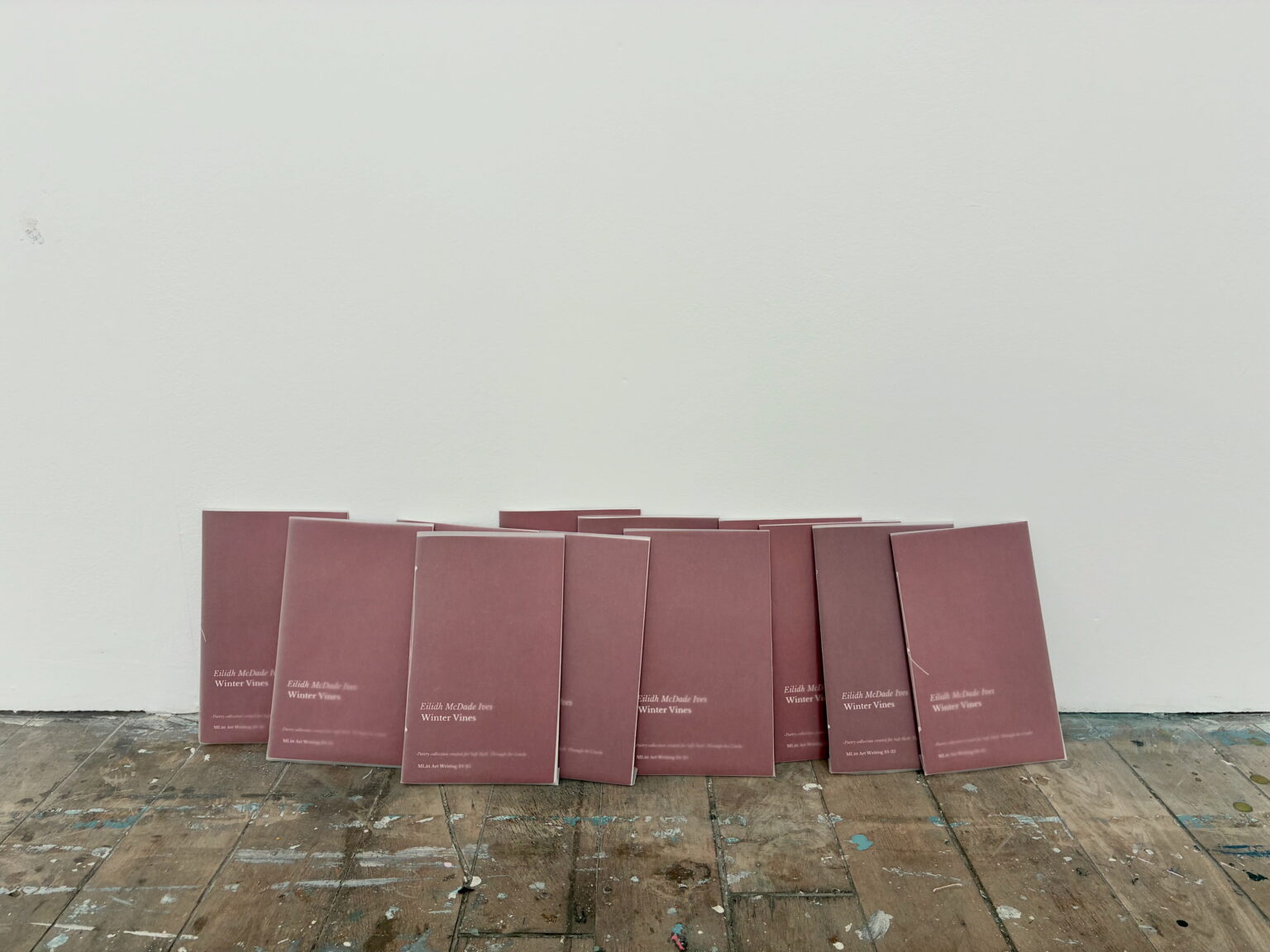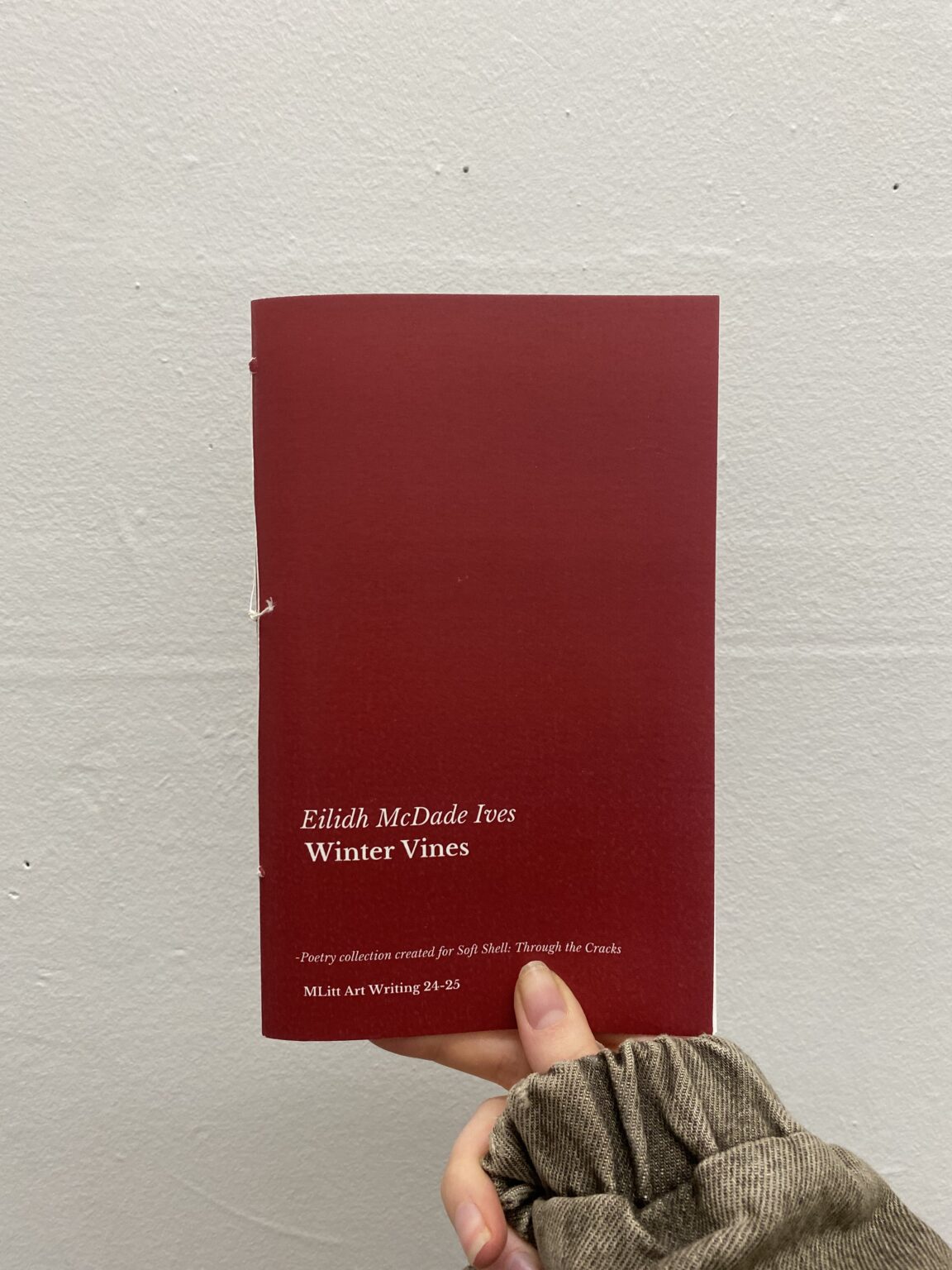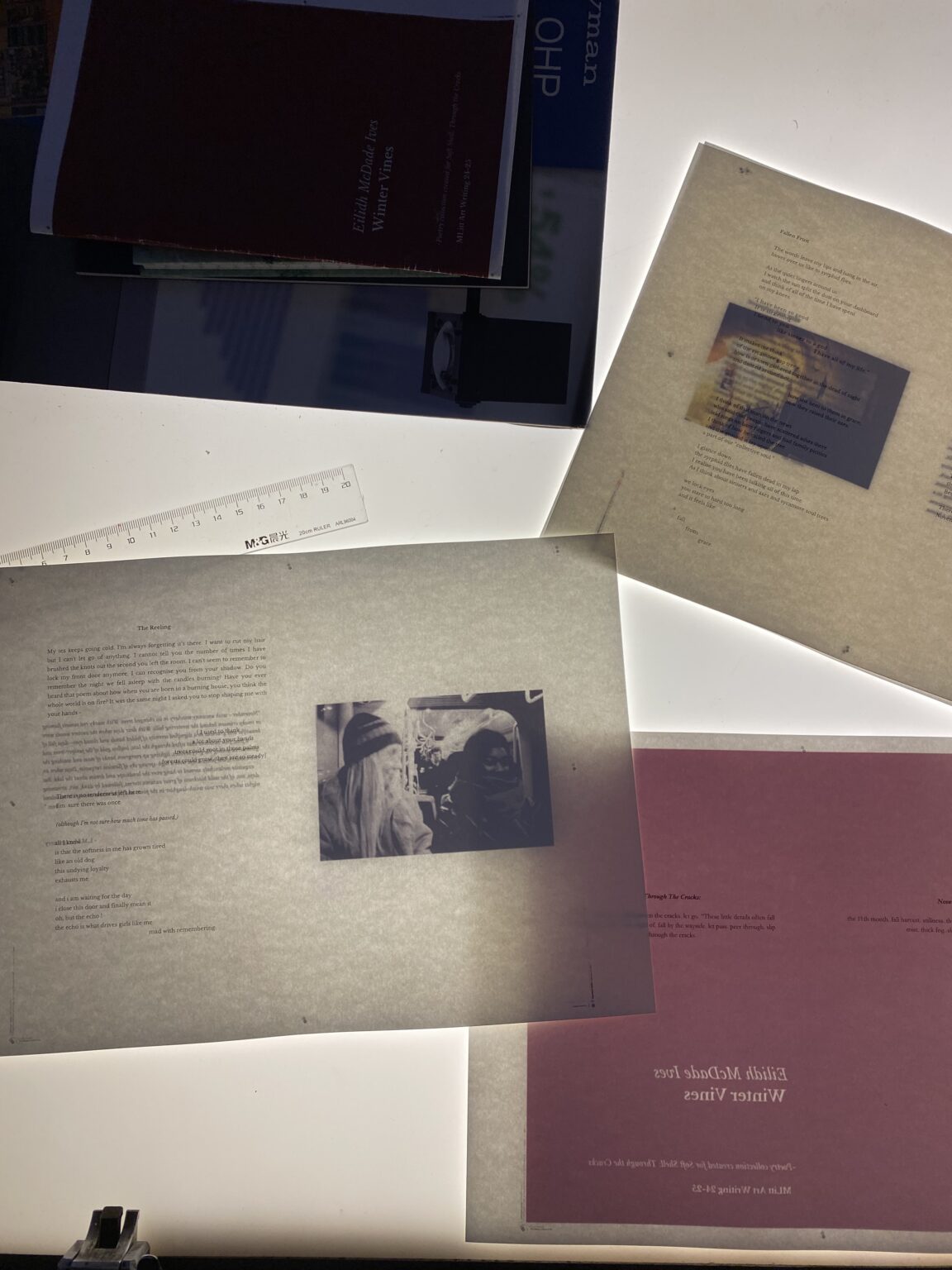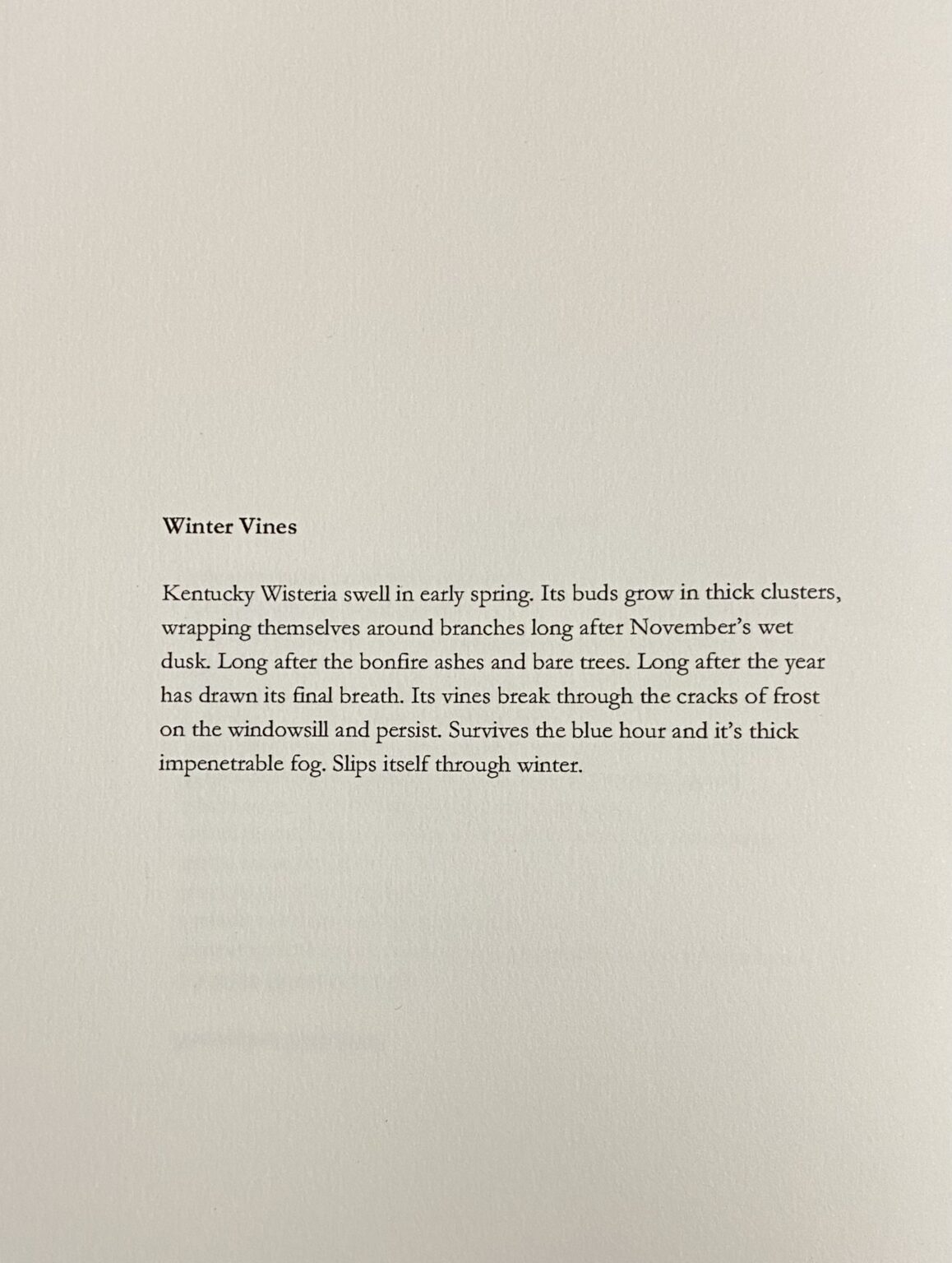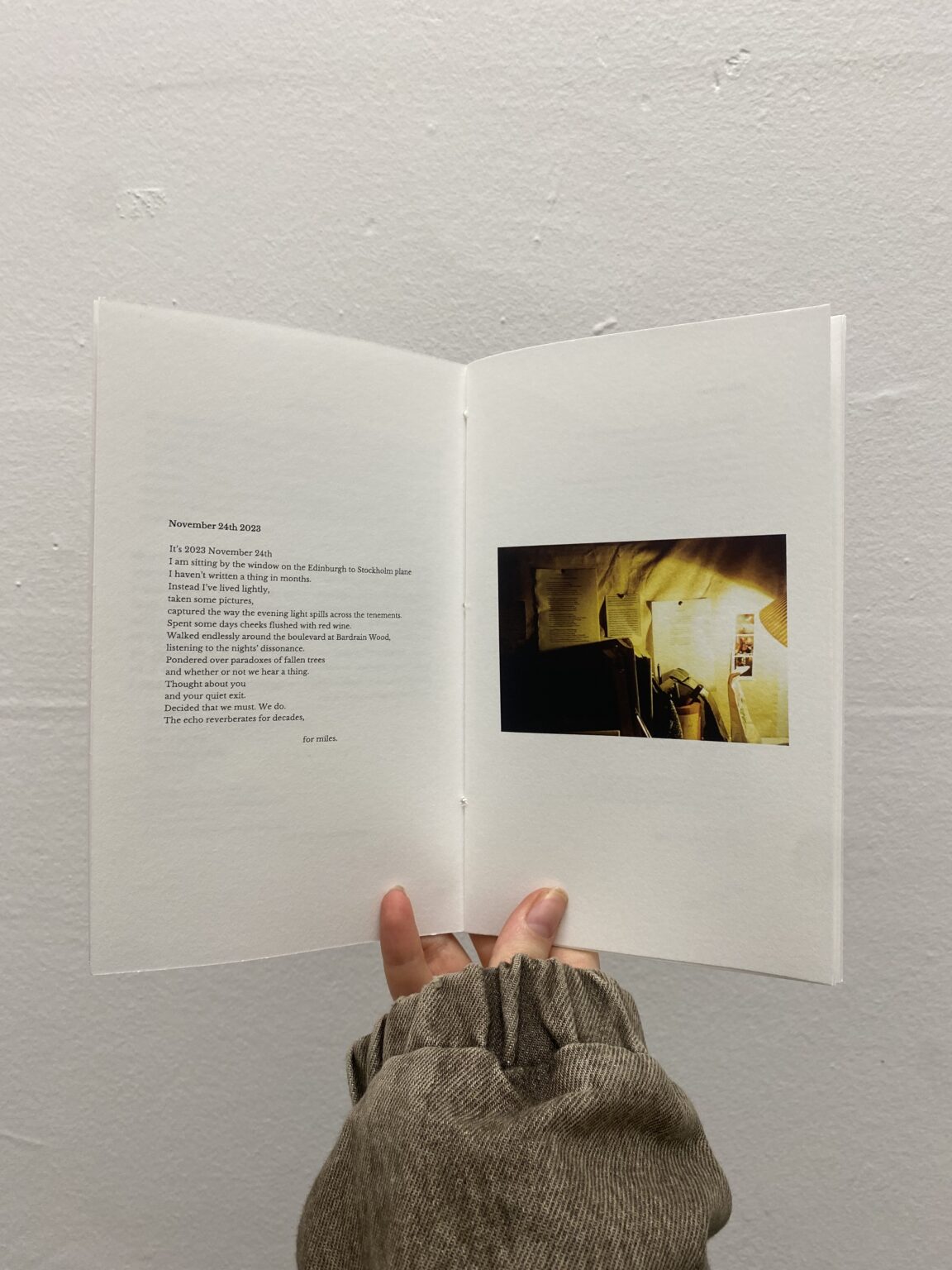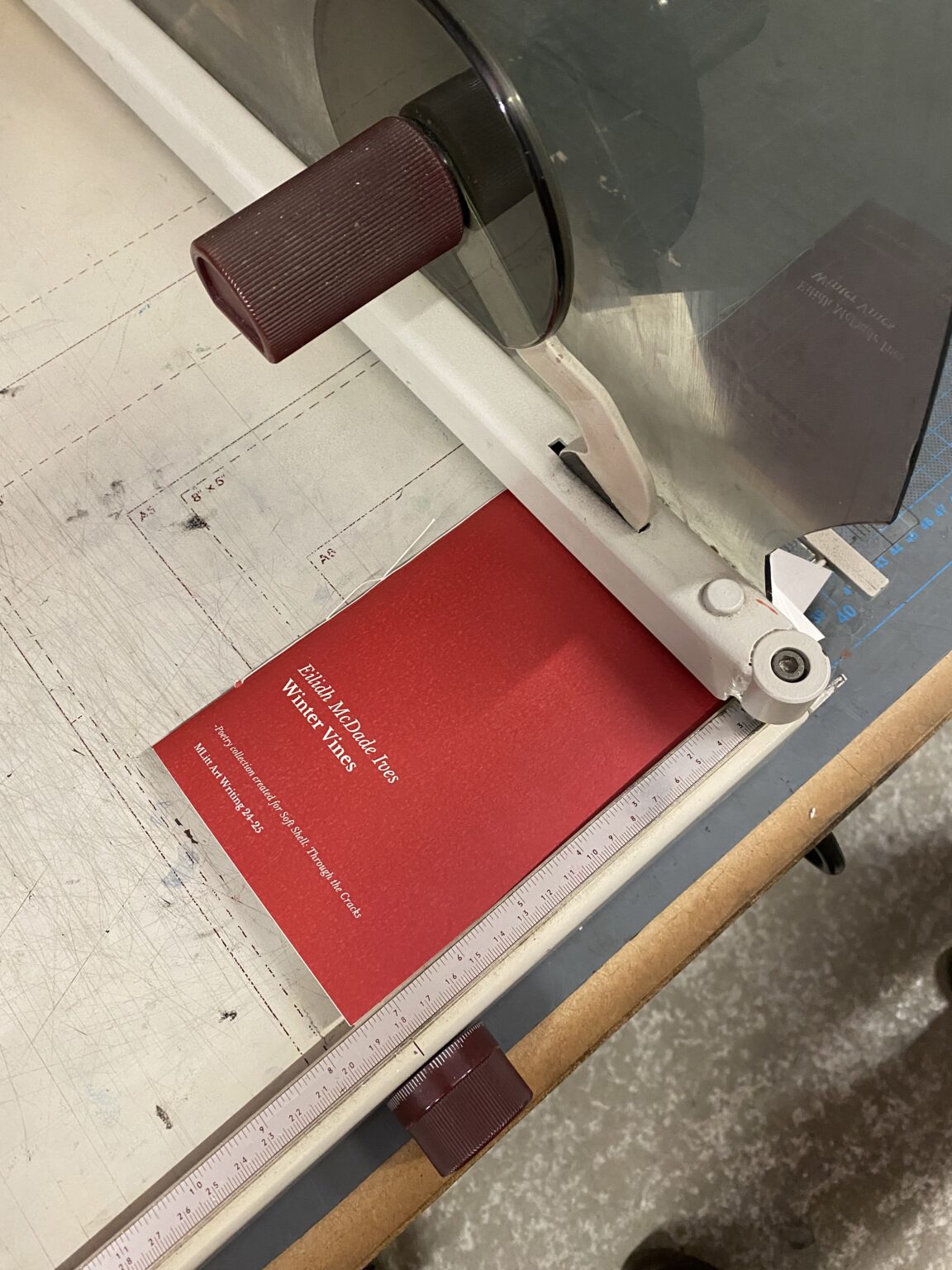MLitt Art Writing School of Fine Art
Eilidh McDade
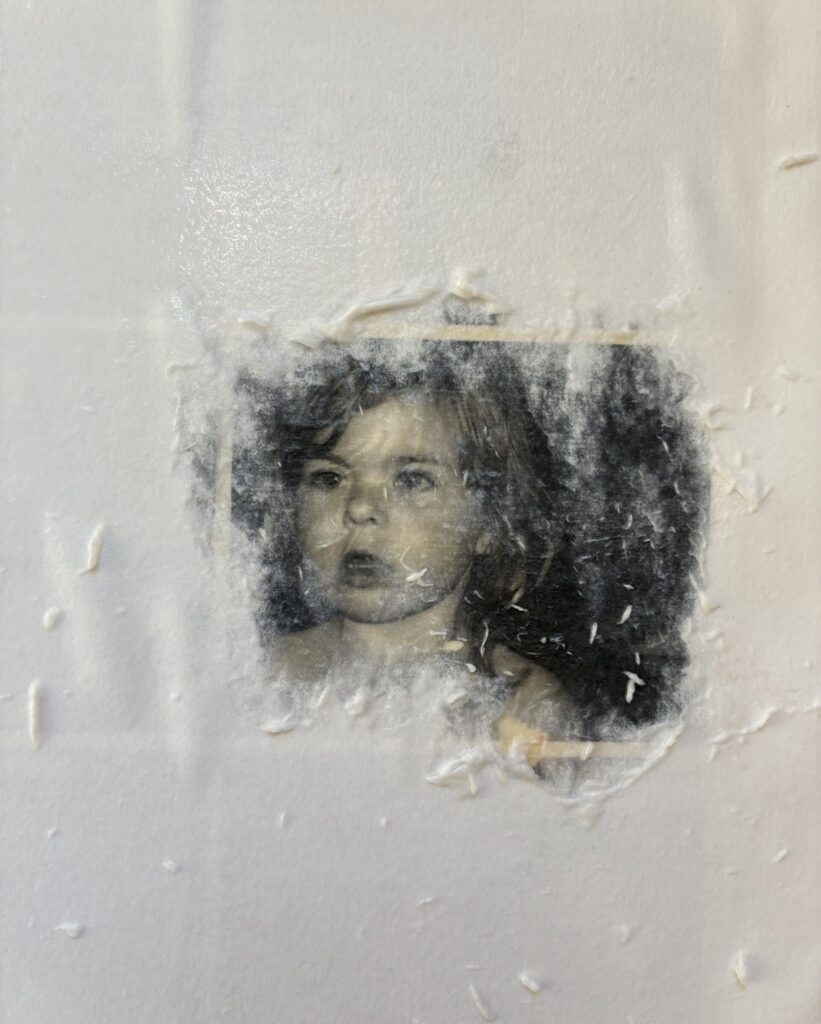
Eilidh McDade is a multidisciplinary artist and writer from Glasgow, Scotland. Her practice is concerned with reconstructing the relationship between writing and artistic practice, creating installations that treat language as a material presence within visual contexts. Her work incorporates photography, found physical materials, and text – engaging with artistic processes that evoke ephemerality and decay. Drawing on theoretical frameworks from memory studies, Eilidh’s practice explores how personal and collective experiences are held, retold, and articulated through the act of writing and making.
Her writing has been published in various publications, such as Pith, GUMagazine, Copy Magazine, and The Yellow Paper: Journal for Art Writing. During her time at the Glasgow School of Art she has also featured in various exhibitions, such as the annual Salon Des Echangistes exhibition taking place in the Stow Gallery, a curatorial project entitledTemporary Pleasures highlighting the works of queer artists, and C2 Metamism, an EP launch and exhibition hosted at The Alchemy Experiment in Glasgow. Eilidh’s practice intends to blur the lines between textual and material production, situating writing as an embodied practice within the visual field. Valuing the tactile, Eilidh’s practice often engages with materials such as wood, fabric, glass, and canvas.
Eilidh received a First Class Bachelors degree in Film and Television from the University of Glasgow in 2024.

No One’s Home
My work No One’s Home is a fabric book composed of short stories, letters, and poems that explore the psychological and symbolic dimensions of the home. This project is theoretically informed by works such as Gaston Bachelard’s seminal book The Poetics of Space (1994), Jacques Derrida’s theory of Hauntology coined in his 1993 book Spectres of Marx (1994), and Mark Freeman’s Telling Stories: Memory and Narrative (2010)
In The Poetics of Space, Bachelard claims that the first home is the primary universe for young children. He explains that the architecture of the home imprints itself upon the imagination and becomes a framework through which all other spaces are understood, posing the question: “If the house is the first universe for its young children, the first cosmos, how does its space shape all subsequent knowledge of other space, of any larger cosmos?” Bachelard’s work highlights the significance of the first home as our initial foundation for security, imagination, and intimacy, serving as a cradle for all future memory. No One’s Home embodies Bachelard’s notion of home as a foundational structure, producing text that speaks to how ‘home’ is constructed, remembered, and carried into adulthood.
Linking with Jacques Derrida’s theory of hauntology, No One’s Home situates the home as a liminal space where past, present, and future co-exist in a spectral overlap. Derrida articulates a temporal disjunction, claiming that both the present and our imaginings of the future are forever unsettled by traces of the past. Derrida is referring to our collective futures, the ways in which cultural, political, and historical ghosts continue to shape the present order. However, No One’s Home applies this theory to our personal histories, recognising how the past infiltrates its way into intimate, domestic, and psychological spaces.
Using the home as a point of critical and poetic inquiry, No One’s Home contributes to broader debates within memory studies, spatial theory, and art writing practice, offering a framework for understanding how personal and collective histories are inscribed in the environments we inhabit.
Provided below are a few selected pages of No One’s Home.
Winter Vines
Winter Vines is hand-bound poetry collection created for Art Writing’s annual spoken word event, Soft Shell, responding to the 2024 theme,Through the Cracks. Winter Vines was influenced by the works of L.M.Montgomery’s The Blue Castle (1926), Sabrina Benaim’s poem entitled Dear Beyonce II (2018), Shirley by Charlotte Brontë (1849), and the works of writer Alison Uttley.

